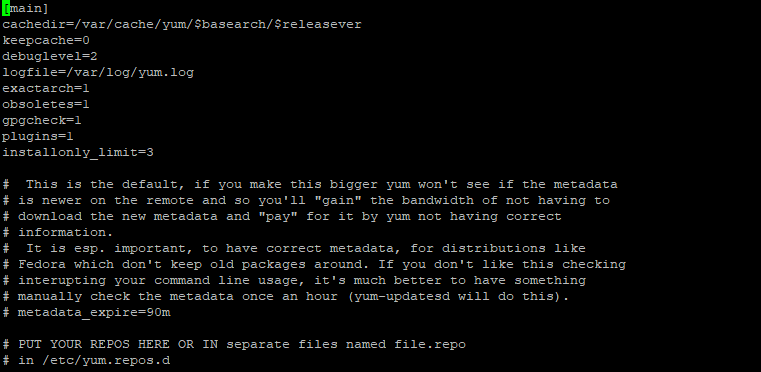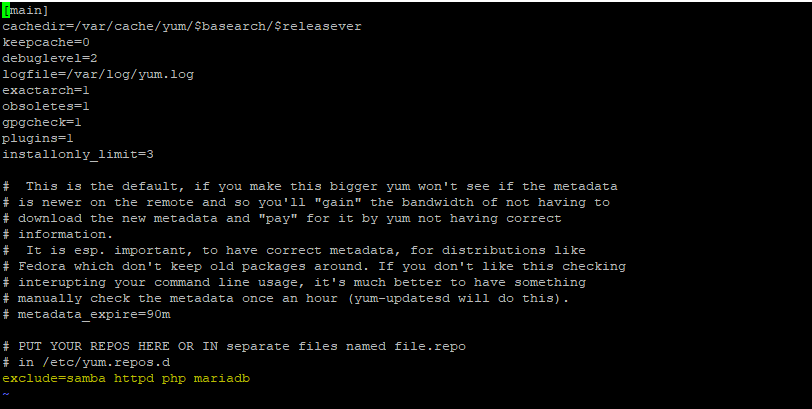In this guide, we'll dive deep and see how we can upgrade specific packages on CentOS Stream. Once in a while, you may be required to upgrade certain packages and leave others in their default versions. One reason for this is maintaining the stability of packages that are used in running crucial services such as databases and web servers. Sometimes an upgrade may result in changes in the package that may affect the normal running of services.
Using yum to upgrade specific packages
Before anything else, we may need first to check the packages with pending updates. To do this, run the following command
yum list updatesYou may need to display multiple versions of a package that exists in your system. To do this, run the command below
yum --showduplicates list httpd | expandIn the above example, you'll be displaying multiple versions of httpd package.
Installed Packages
httpd.x86_64 2.4.6-67.el7_4.6 @rhui-REGION-rhel-server-releases
Available Packages
httpd.x86_64 2.4.6-17.el7 rhui-REGION-rhel-server-releases
httpd.x86_64 2.4.6-18.el7_0 rhui-REGION-rhel-server-releases
httpd.x86_64 2.4.6-19.el7_0 rhui-REGION-rhel-server-releases
httpd.x86_64 2.4.6-31.el7 rhui-REGION-rhel-server-releases
httpd.x86_64 2.4.6-31.el7_1.1 rhui-REGION-rhel-server-releases
httpd.x86_64 2.4.6-40.el7 rhui-REGION-rhel-server-releases
httpd.x86_64 2.4.6-40.el7_2.1 rhui-REGION-rhel-server-releases
httpd.x86_64 2.4.6-40.el7_2.4 rhui-REGION-rhel-server-releases
httpd.x86_64 2.4.6-45.el7 rhui-REGION-rhel-server-releases
httpd.x86_64 2.4.6-45.el7_3.4 rhui-REGION-rhel-server-releases
httpd.x86_64 2.4.6-67.el7 rhui-REGION-rhel-server-releases
httpd.x86_64 2.4.6-67.el7_4.2 rhui-REGION-rhel-server-releases
httpd.x86_64 2.4.6-67.el7_4.5 rhui-REGION-rhel-server-releases
httpd.x86_64 2.4.6-67.el7_4.6 rhui-REGION-rhel-server-releasesFrom the results above, we notice that the httpd package currently installed is version 2.4.6-67.el7_4.6 which is the latest. What if you wanted to install a specific version of the package, how would you go about it? The syntax for that will be as shown below
yum install packagename versionFor example, If you desire to downgrade to version 2.4.6-67.el7_4.5, you'll need to remove the latest version first as shown.
yum remove httpdThereafter, install your preferred httpd version as shown.
yum install httpd 2.4.6-67.el7_4.5To lock the version of the package we've installed, to avert any future updates, we use the versionlock plugin. To install the plugin, run
yum install yum-versionlockSample Output
yum-plugin-versionlock-1.1.31-42.el7.noarch.rpm | 32 kB 00:00:00
Running transaction check
Running transaction test
Transaction test succeeded
Running transaction
Installing : yum-plugin-versionlock-1.1.31-42.el7.noarch 1/1
Verifying : yum-plugin-versionlock-1.1.31-42.el7.noarch 1/1
Installed:
yum-plugin-versionlock.noarch 0:1.1.31-42.el7
Complete!To lock our httpd package version, we'll run the command below
yum versionlock httpdOutput
Loaded plugins: amazon-id, rhui-lb, search-disabled-repos, versionlock
Adding versionlock on: 0:httpd-2.4.6-67.el7_4.5
versionlock added: 1To upgrade specific packages
yum upgrade package-nameTo temporarily exclude a package from an upgrade, run the following command
yum --exclude update package-nameAlternatively, you can use the -x flag instead of --exclude
yum -x exclude httpd,phpThe above command will exclude the httpd and php packages from the upgrade as the rest of the packages are upgraded.
If you want to permanently disable a package from updates, locate the yum.conf in /etc/yum/yum.conf
Here's a snap of how it looks like

To exclude a package, append exclude=package-name at the end of the configuration file. In this example, we'll exclude samba , httpd, php and mariadb packages from the upgrade as shown below.

Now If you try to upgrade either of these packages, you'll get an No packages marked for update error.

Thanks for reading, please leave your feedback and suggestions in the below comment section.



Comments